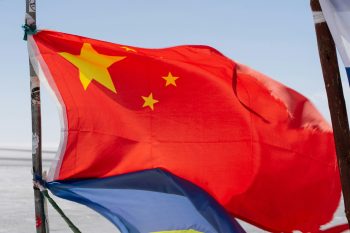Manhattan Project 2.0 is proposed for Artificial General Intelligence to counter escalating tensions with China in technology race and strategic competition.

By Dashveenjit Kaur
December 23, 2024
Categories: AGI, Applications, Artificial Intelligence, Cloud, Companies, Data Center, Security
As the US-China rivalry in artificial general intelligence (AGI) intensifies, a new chapter of strategic competition is unfolding. The US-China Economic and Security Review Commission (USCC) has released its latest report to Congress, recommending a Manhattan Project-style initiative to develop AGI and imposing restrictions on humanoid robots. This ambitious proposal aims to fundamentally alter the dynamics of the US-China relationship.
The Emerging AGI Rivalry: A New Chapter in Strategic Competition
At the heart of the report lies an audacious proposal: establishing a government-backed program to develop AGI, which would enable AI systems to match and potentially exceed human cognitive abilities. This recommendation is part of a larger technological puzzle, including export controls, investment screening, and new trade policies designed to preserve US technological advantages.
The proposed AGI initiative would provide multi-year contracts to leading AI companies, cloud providers, and data center operators. It would be backed by the Defense Department’s highest priority, ‘DX Rating’ – a designation typically reserved for critical national security projects. This level of government involvement in AI development mirrors the urgency seen in previous technological races.
Government Intervention: A Double-Edged Sword
The Commission’s tech-focused recommendations extend beyond AGI. Notable proposals include restricting imports of Chinese-made autonomous humanoid robots with advanced dexterity, locomotion, and intelligence capabilities. The report also targets energy infrastructure products with remote monitoring capabilities, reflecting growing concerns about connected technologies in critical infrastructure.
Export Controls and Investment Screening: A New Chapter in US-China Relations
The Commission suggests creating an Outbound Investment Office to prevent US capital and expertise from advancing China’s technological capabilities in sensitive sectors. This comes as China continues to build domestic chip-making capabilities despite international restrictions. The report also recommends strengthening oversight of technology transfers and investment flows.
Reshaping Trade Relations and Investment Flows: A New Era for the Tech Industry
Perhaps most significantly, the report recommends eliminating China’s Permanent Normal Trade Relations (PNTR) status—a move that could reshape the technology supply chain and trade flows that have defined the global tech industry for decades. This recommendation acknowledges how deeply intertwined the US and Chinese tech ecosystems have become, while suggesting that this interdependence may now pose more risks than benefits.
Data Transparency: A Key Theme in the Report
The Commission calls for expanded reporting requirements on investments and technology transfers. It also suggests better tracking of investments flowing through offshore entities, addressing a significant blind-spot in current oversight mechanisms.
Challenges and Future Implications: Navigating an Increasingly Complex Regulatory Landscape
Achieving AGI remains a complex scientific challenge that may not yield quick results, regardless of funding levels. Additionally, restrictions on technology transfers and investment could have unintended consequences for global innovation networks that have historically benefited both nations.
If these recommendations are implemented, the tech industry will need to navigate an increasingly complex regulatory landscape. Companies would face new compliance requirements for international investments, technology transfers, and collaborative research projects.
The Road Ahead: Coordination with Allies and Partners
The effectiveness of the proposed measures will likely depend on coordination with allies and partners who share similar technological capabilities and concerns. The report acknowledges this by recommending multilateral approaches to export controls and investment screening.
US-China technological competition has entered a new phase where government policy may play a more direct role in shaping development. Whether this approach accelerates or hinders innovation remains to be seen, but the tech industry should prepare for increased scrutiny and regulation of international technological collaboration.
Related Stories:
- Chinese firms use cloud loophole to access US AI tech
- Want to learn more about AI and big data from industry leaders? Check out AI & Big Data Expo taking place in Amsterdam, California, and London.
- Explore other upcoming enterprise technology events and webinars powered by TechForge here.
Tags:
- ai
- artificial intelligence
View Comments Leave a comment Leave a Reply Cancel reply You must be logged in to post a comment.